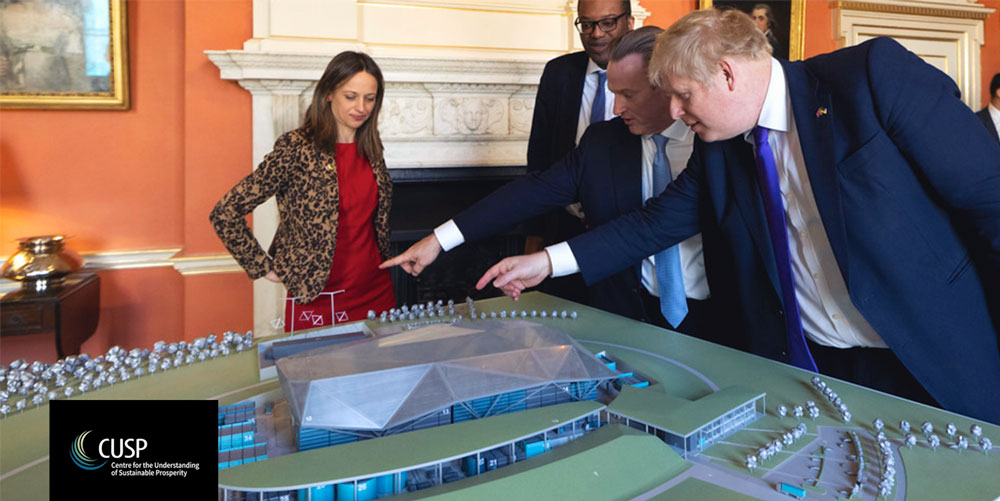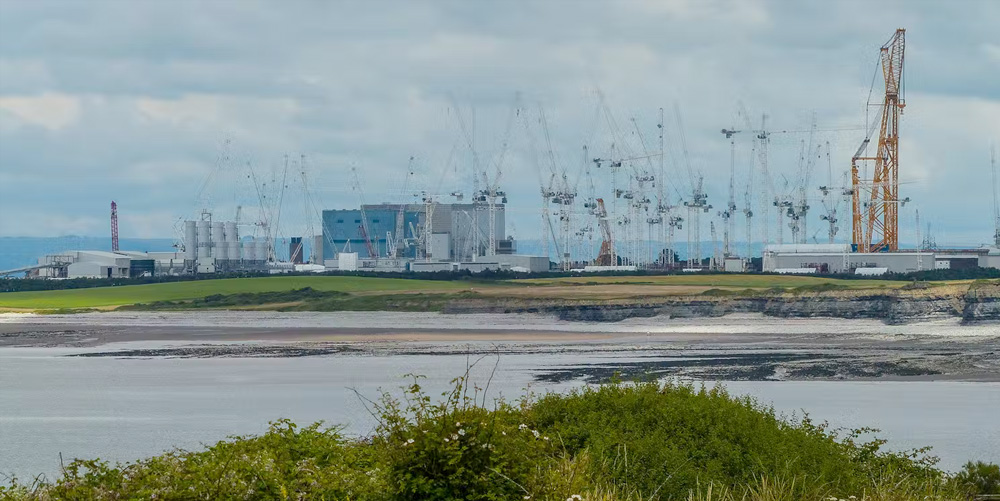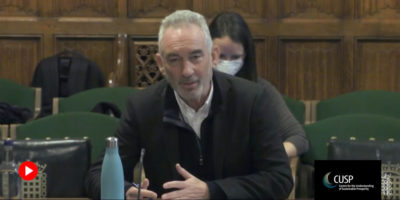Why UK’s ‘treasured free-market economy’ will not achieve net zero
Whatever the UK government says it’s doing—and not doing—one thing is clear, Tim Jackson writes, the “treasured free-market economy” is never going to compensate for our failure to insulate people’s homes against the cold, and the future against the ravages of climate change. This blog first appeared on the The Conversation website.
BLOG by TIM JACKSON

As luck would have it, the UK government launched its latest energy security strategy on the same day I’d arranged to get cavity wall insulation installed in our ex-council, end-of-terrace 1930s family home.
Not that there was much connection between those two things. Our house is one of 26 million reasons why something needs to be done about Britain’s leaky housing stock. The government’s strategy was conspicuously silent on any policies to achieve it. Nothing at all, for instance, to replace the short-lived Green Homes Grant scheme, launched in July 2020 and scrapped in March 2021 amid vague accusations of bureaucratic failure.
Our own upgrade had missed that window. It cost me a host of unanswered emails, labyrinthine websites and pushy sales calls to find someone I could trust. But I knew from the work they’d done upgrading our loft insulation that these guys were efficient, professional and courteous. A small family-owned company run by three brothers. I liked them.
I asked the oldest brother (let’s call him Asif) what he thought of the support for household energy efficiency in the UK. Or the lack of it. “I’ll tell you something,” he told me. “When the Green Homes Grant was running we had three times as many teams out on the road as we do today”. All the more damning then, that there was nothing new in this strategy to help their cause.

Work that I and many others carried out over more than 30 years ago has shown that improving energy efficiency is one of the most cost-effective ways of reducing energy consumption, avoiding carbon emissions and bringing down household bills. So why is it so difficult for the government to take it seriously?
The British way?
The day before the strategy was launched, Business Secretary Kwasi Kwarteng shed a curious light on the puzzle. During an online speech to the Harvard Kennedy School he highlighted what he called “the British way”. Dismissing outright anything that smacked of a “planned economy”, he insisted on “the power of our treasured free-market economy to leverage private capital and unleash Britain’s unique entrepreneurial spirit to grow new industries”.
If Asif and his brothers had been listening, they might have felt a tremor of hope. But apparently they weren’t the kind of entrepreneurs Kwarteng was thinking of. “Expensive gas is the problem,” he told the Kennedy School. “Cheap, clean, homegrown energy is the solution”.
Strange then, that the flagship of the new strategy turned out to be nuclear power, which is neither clean nor cheap – nor even home-grown. In 2013, 25 years after the newly-privatised electricity market refused to have anything to do with nuclear power, the UK’s coalition government offered French and Chinese contractors a hefty subsidy to start building the Hinkley Point C reactor in Somerset. After numerous delays and pernicious cost-overruns it won’t be in service until at least 2027. Five years from now. Nuclear will do nothing for today’s pressing energy security needs. It will be no relief at all to households struggling with soaring energy bills.
Beyond that great white elephant, the strategy held out a vote of confidence in offshore wind energy, gave a nod of long-term support for hydrogen and made a gesture of goodwill towards that other highly contested technology: fracking.
In a partial roll-back of David Cameron’s effective moratorium on onshore wind energy, it also graciously allowed communities to be consulted about their desire to accept wind farms in exchange for lower energy bills. As I first found out when I was giving evidence to an inquiry into an earlier Hinkley Point proposal way back in 1988, that was something Denmark had implemented seamlessly decades ago.UK homes are among Europe’s worst-insulated. 35mmMan / flickr, CC BY-SA
Few specific policies
The strangest aspect of the strategy was the almost complete absence of anything that looked even vaguely like an actual policy. Or even a strategy. “Clear long-term signals” was the best to be had. But no new money attached to any specific target. Presumably that would have looked way too much like a planned economy. Not at all the British way.

Strangely though, planning was allowed in the form of a new Future System Operator to “drive our overall transition and oversee the UK energy system”. In a long-overdue recognition that an unfettered energy market hasn’t a snowball’s chance in hell of managing the perfect storm of climate change, energy security and spiralling gas prices, this as yet undefined role is definitely going to need some kind of plan—and soon.
When you put Kwarteng’s fine words together with the failure to offer real support to the most basic and cost-effective solutions, you can’t help thinking this was just an exercise in half-hearted forward guidance. A noncommittal attempt, on the basis of flawed ideological assumptions, to “leverage private capital” in place of meaningful government policy. Or in other words to point financial wealth towards what might one day become publicly-subsidised, above-market rates of return for the lucky few.
As for ordinary households struggling with escalating bills, well, there is still a grant scheme to offset £5,000 from the cost of an air source heat pump. I looked into it. For our now well-insulated house, we’d have to find around £6,000 on top of the grant and could expect to save £40 a year, giving a princely payback time of 150 years.
Asif told me something else as he checked one more house off the UK’s “most leaky” list. The only time they were busier than during the Green Homes Grant scheme was when Insulate Britain glued themselves to the M25 motorway.
Whatever the government says it’s doing—and not doing—one thing is clear. The “treasured free-market economy” is never going to compensate for our failure to insulate people’s homes against the cold, the world against Putin’s atrocities, and the future against the ravages of climate change. I’m off to buy some glue.



